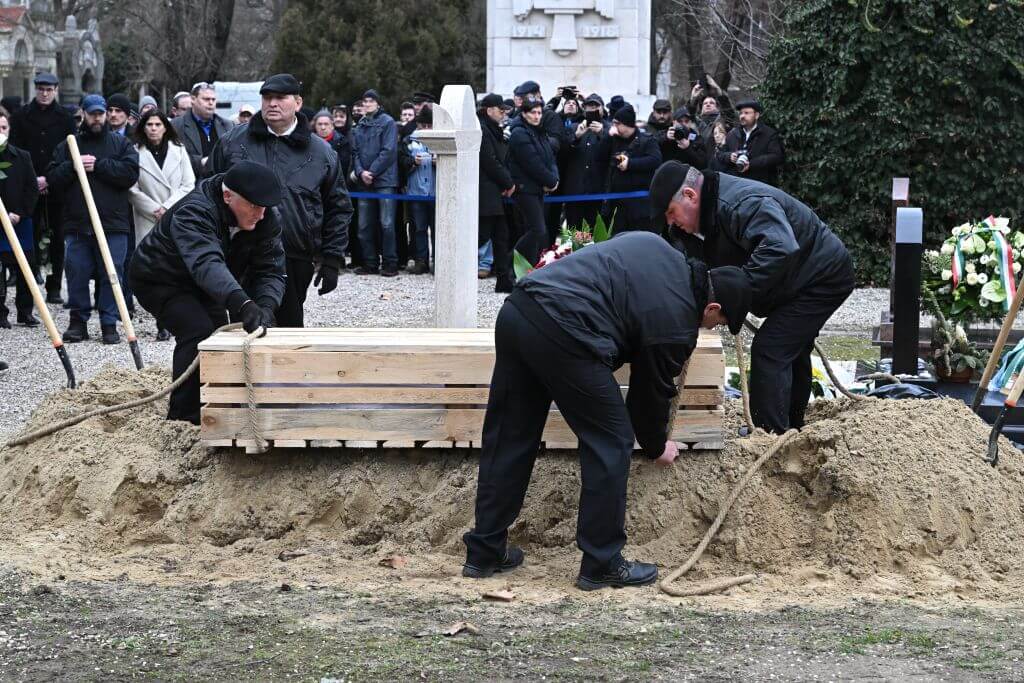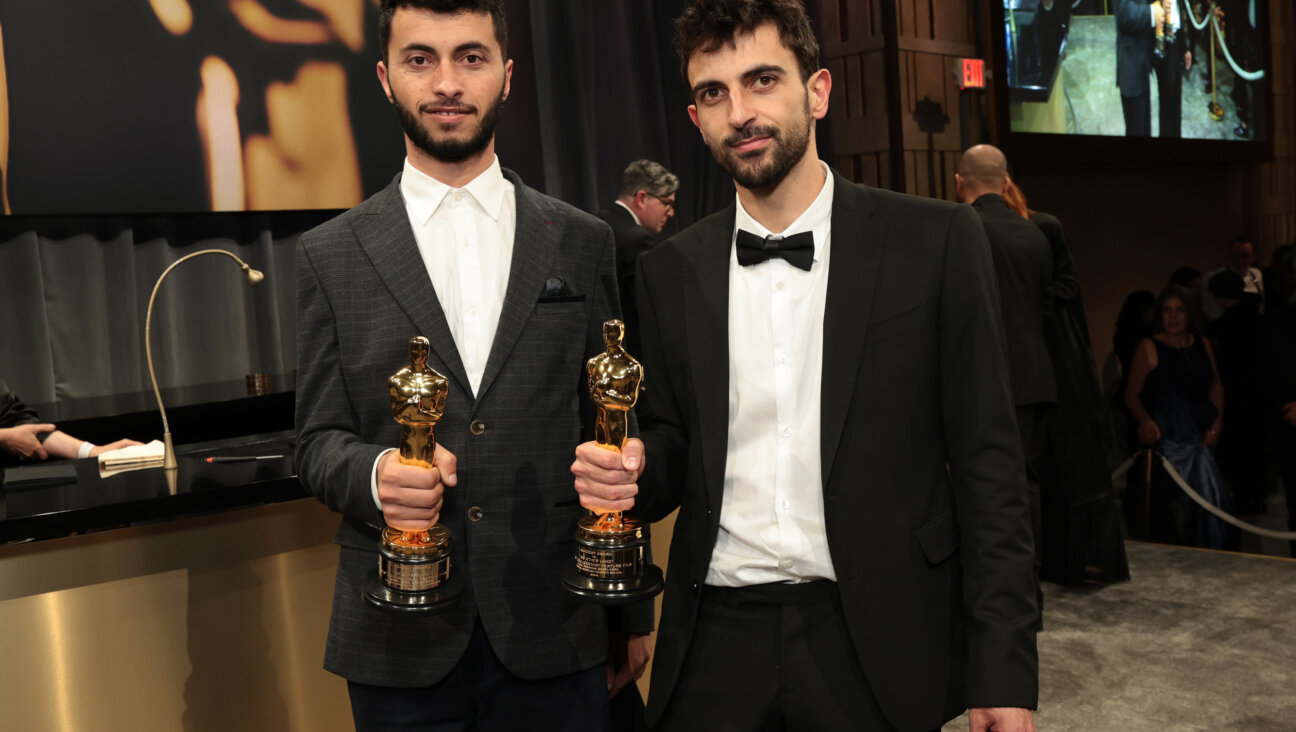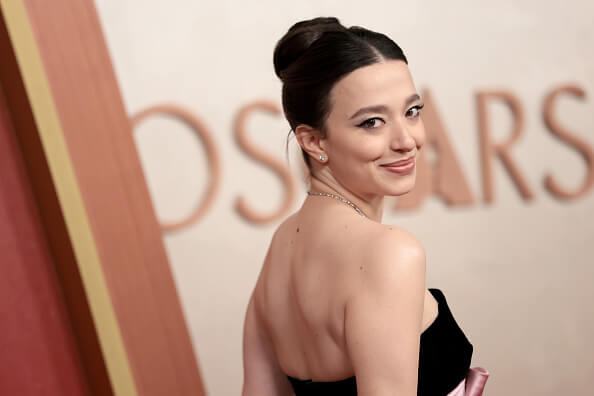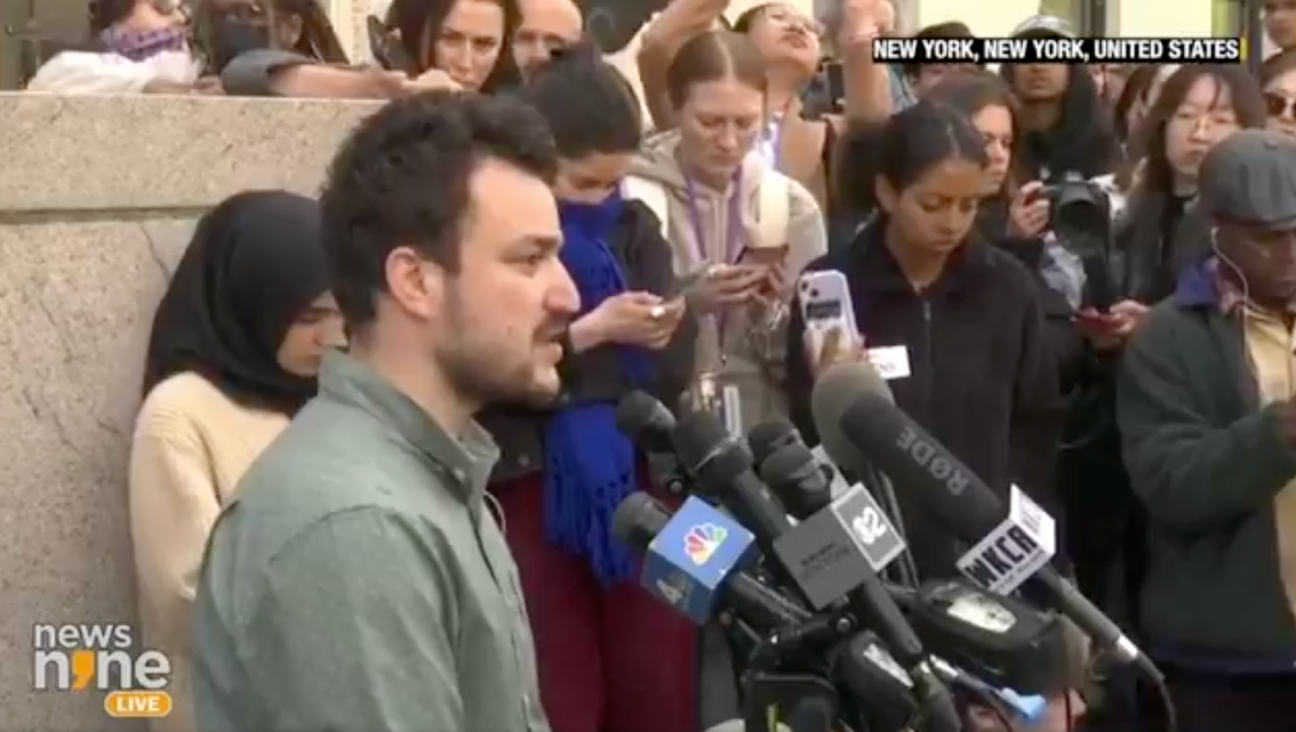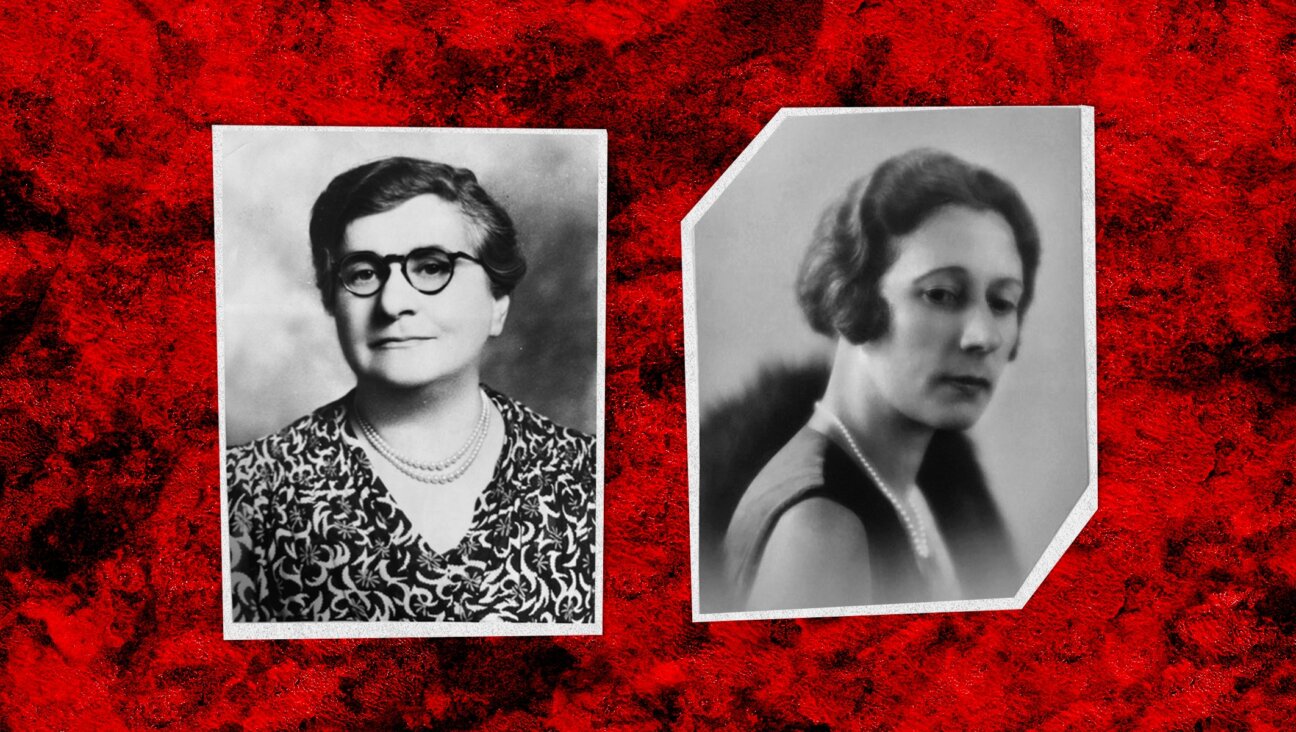Big Performances

Big stage: Dancing up a celebration. Image by ARIEL BESOR

Strong Expression: Barak Marshall?s ?Monger? moves with supple muscularity. Image by GADI DAGON
An eager crowd took its seats high above the Suzanne Dellal Center’s plaza for the opening of the three-week festival Habama Hagdola — The Big Stage. Two majestic palm trees framed the large outdoor stage, and the center’s main building provided a picturesque backdrop. A glance around revealed the impressive scenery of the first century of Tel Aviv: quaint red-roofed homes of the Neve Tzedek neighborhood overtaken within a few blocks by modern skyscrapers.
But it was the action onstage that captured the audience’s gaze. Rooted in a wide stance, five women grabbed their heads and raised their arms in exasperation. Rocking vigorously in place, they performed a series of intricate gestures. Even the smallest motion — a lift of the hip, a tilt of the chin — was delivered with attitude. The movement grew, the pace quickened and the tension built as five men approached the women.
This nuanced, lively dance — Barak Marshall’s “Monger” — was only part of the excitement onstage. The popular band Balkan Beat Box lent its infectious rhythms and hypnotic vocals to the choreographic excerpts. As the dance and live music mixed, Marshall recounted, “the energy on the stage was explosive and surprising.”

Big stage: Dancing up a celebration. Image by ARIEL BESOR
In some ways, though, this synergy might have been predicted: Here were two massive hits performing together. BBB’s fusion of musical influences has won the group a devoted following, and “Monger,” with its theatrical vitality, was a big success during Israel’s most recent dance season.
“Monger” follows 10 characters who serve the domineering (but never visible) Mrs. Margaret. Marshall combines text, an eclectic sound score, clever visual tricks and an expressive physical language into a well-seasoned dramatic stew. Some rhythms and gestures seem Middle Eastern, others European, and still other elements — especially vintage radio ads for Hebrew National and Manischewitz products — provide a taste of Jewish New York in the early 1900s. This blend of cultural flavors has endeared “Monger” to audiences at home and abroad.
The Big Stage marks Suzanne Dellal’s 20th anniversary, and Marshall attributes much of his own success to the center. “Simply put, I would not be a choreographer if it weren’t for the Suzanne Dellal Center,” Marshall said. “[Suzanne Dellal director] Yair Vardi discovered me, challenged me and pushed me to challenge my limits.” The center also produced “Monger.”
Marshall is not alone in benefiting from Suzanne Dellal’s support. The choreographer further credits the center with the larger “renaissance of dance in Israel,” thanks to numerous yearly festivals that “discover new choreographers and catapult young Israeli creators into the international dance scene.”
The center’s extensive programming is made possible by its remarkable facilities. Suzanne Dellal boasts three theaters for productions large and small, traditional and experimental. Both the Batsheva Dance Company and the Inbal Pinto Dance Company call the center home, and the complex’s studios host other choreographers’ activities. Imagine New York City’s Lincoln Center devoted exclusively to dance. Add some visionary leadership, and you have a sense of the Suzanne Dellal Center — the reason that Israeli dance is increasingly a global force.
According to Vardi, who has steered the institution since its founding, Suzanne Dellal is “definitely the major dance center in Israel.” Besides possessing this national distinction, Suzanne Dellal has thoroughly integrated itself into the fabric of Tel Aviv. Vardi proudly outlines the center’s many contributions to the city, affirming, “By now, we’re a very important part of Tel Aviv’s culture scene.”
The Big Stage celebrated not only the Suzanne Dellal Center’s birthday, but also Tel Aviv’s centennial. Accordingly, the festival reflected the city’s artistic treasures. Besides BBB, major Israeli musical acts, including Chava Alberstein, Ehud Banai and the Idan Raichel Project, rocked the house. The Orna Porat Theater for Children and Youth, which is in residency at Suzanne Dellal, charmed a family audience.
Yet it was the dance concerts that revealed the essence of the Suzanne Dellal Center. Spain and Canada have been particularly supportive of the center, so Vardi invited Madrid’s Compañía Nacional de Danza and Les Grands Ballets Canadiens de Montreal to perform.
The rest of the dance programming exhibited some of the best that Suzanne Dellal has offered throughout its history. The acclaimed Kibbutz Contemporary Dance Company presented Rami Be’er’s 1994 masterpiece, “Aide Memoire.” Choreographer Ido Tadmor revived “Cell” and “Sima’s Pot” with cameo appearances by legendary dancers Rina Schenfeld and Talia Paz.
Another collaboration paired Vertigo Dance Company with the Tararam Group, which fuses dance and percussion. Vertigo’s tribe of daring dancers threw themselves into Noa Wertheim’s 2008 “White Noise.” As the troupe charged toward the audience and tore across the stage, Tararam’s drummers increased the electrifying intensity. Tararam’s performance also received a fresh twist with an acrobatic solo by one of Vertigo’s dancers.
No celebration of Tel Aviv and the Suzanne Dellal Center could be complete without the Batsheva Dance Company. Together with the Batsheva Ensemble, Israel’s oldest modern dance company performed excerpts from some of Ohad Naharin’s most beloved repertory. The dancers’ bodies rocketed into deep arches to the chorus of “Echad Mi Yodea” (“Who Knows One”) and repeated jointed, rhythmic patterns during a synthesized version of Ravel’s “Bolero.”
Dressed in black suits and hats, the Batsheva dancers pulled audience members onstage to a techno rendition of “Somewhere Over the Rainbow.” The unsuspecting performers gamely grooved with their professional counterparts; some even hammed it up on the Big Stage.
The crowd rooted wholeheartedly for Batsheva, for Suzanne Dellal’s home team and for the most recognizable emblem of Israeli contemporary dance. Too soon came the end of the festival, but all left assured that Tel Aviv is still moving with grace and purpose as it begins its second century.
Deborah Friedes is a freelance dance writer and lecturer who founded www.danceinisrael.com.
A message from our Publisher & CEO Rachel Fishman Feddersen

I hope you appreciated this article. Before you go, I’d like to ask you to please support the Forward’s award-winning, nonprofit journalism so that we can be prepared for whatever news 2025 brings.
At a time when other newsrooms are closing or cutting back, the Forward has removed its paywall and invested additional resources to report on the ground from Israel and around the U.S. on the impact of the war, rising antisemitism and polarized discourse.
Readers like you make it all possible. Support our work by becoming a Forward Member and connect with our journalism and your community.
— Rachel Fishman Feddersen, Publisher and CEO







